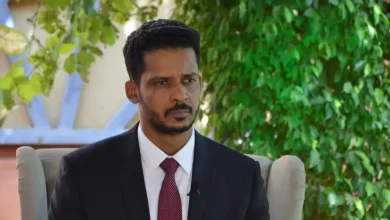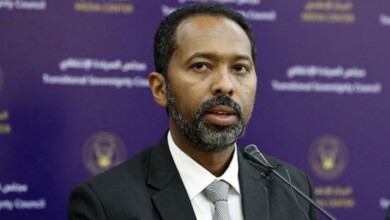Al Monitor: The newly appointed Port Sudan Prime Minister has no legitimacy or popularity

A report by the American website (Al-Monitor) cast doubt regarding the achievement of the goals announced by the newly appointed Prime Minister of the Port Sudan Authority, Kamil Idris, in his speech before Abdel Fattah Al-Burhan, in which he pledged to implement “Civilian Rule.” The report also believed that Idris lacks “legitimacy and popularity.”
According to experts who spoke to (Al-Monitor), “Civilian rule seems rather unattainable” given the military’s control over the Port Sudan Authority.
The Sudan News Agency (SUNA) reported on Sunday that the new head of the Port Sudan Authority, Kamil Idris, announced the dissolution of the current government during a meeting with the Council of Ministers. According to the agency, Idris assigned the secretaries-general and undersecretaries of ministries to act as ministers until a new government is formed.
Al-Monitor commented on the dissolution of the previous government and the formation of a new one, sharing, “However, military control remains overpowering.” Moreover, it remains unclear when the new Port Sudan Authority will be formed, which Sudanese media reported would include militia leaders.
Al-Burhan had previously pledged to form a technocratic government, promised a civilian administration, and drafted a new constitution, according to the news website (Al-Monitor).However, it noted that subsequent amendments to the interim constitution “appeared to consolidate military control.”
Commenting on the “hopes” that the new government would mark the beginning of civilian rule, Cameron Hudson, a senior fellow in the Africa Program at the Center for Strategic and International Studies (CSIS) in Washington, stated that this depends on “the extent of Idris’s actual power.”
Hudson added, predicting failure as a foregone conclusion, “because the military is the primary authority in the country,” and “any power civilians hold is essentially granted to them by the military.”
According to (Al-Monitor), the so-called “Transitional Sovereignty Council,” headed by Al-Burhan, retains the power to appoint and dismiss the Prime Minister, indicating the “futility” of the latest development.
Hudson shared that Idris “has gained no legitimacy or popularity, doesn’t possess a political base of his own, nor does he enjoy a base of influence,” adding that he is “a product of the military at this point.” He went on to reiterate his skepticism about the new head of the Port Sudan Authority’s ability to succeed.
Hudson concluded that “traditionally, these types of positions have served as scapegoats for the military, a way for them to channel public discontent away from themselves, towards someone they can easily blame, then dismiss, and replace.”





